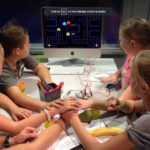While playing these simple games like threes, 2084, I recognise the different layers/levels of play, the dynamics of me learning to find easy and difficult strategies which bring me further inside the game and make me able to accomplish higher scores. The dilemmas I experience in finding a strategy and learning when letting go of a strategy is necessary or needed. When to know when to let go and when to hold on to a strategy, that is the real question. Just as in real life, when to let go of a thought, a method, a behaviour when it seems to be working but appears not to be working when the context or situation changes in time, not easy to let go then… And then learning that the holding on to or letting go of a strategy becomes a copingstrategy itself…
I have been playing these games a lot. They look very mich alike and the game mechanics are very similar: player swippes up, down, left or right to pair two similar elements into ine higher new element. All games have 16 spaces and when no matching pairs can be made, no move can be done and the game ends (see this video if you need more input the understand how the game is played)
Sounds simple and very much the same for these three games… and the easy acces for these games is very well done, anyone can play, and everyone can feel the progress in learning and mastering while playing (however some people are bored or annoyed easily with this, which I can understand).
What intrigued me most about this three similar games is how they do differ while playing, and the strategic in play is very different!
The only mechanical difference is:
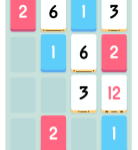 |
Threes: still love this one the most, however the 1+2 =3 seems to be a style distortion the sounds make it so strong for me, I symphatise with the characters, the sexy voice of 36! Never playing alone when you play threes ; P one of the sixteen spaces is already taken and becomes an obstacle during play (my hiscore: 8.922) |
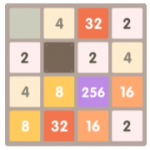 |
1248 one of the sixteen spaces is already taken and becomes an obstacle during play. (my hiscore: 10.720) |
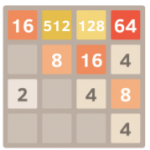 |
2048 misses the obstruction and gives you the feeling of control more then 1248, still chance of the random appearing new numbers make you intrigued with the factor “chance” or playing perfectly (my hiscore 17.636) |
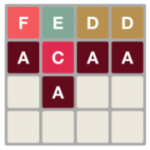 |
2084-ABC the alphabet is ending in 26 letters, but when playing you learn the letter J is a high reach and the letter K seems to become epic! The letters instead of numbers feel very different and you stop ‘calculating’ ehich does happen in the other games, you recognise other patterns in the number versions, the alphabet seems very abstract, yet your ‘verbal’ mind starts to play around with the symbolism of characters (my hiscore 19.720)The games with the numbers makes you count, and calculate and the increasing number makes you veel greedy and hungry for more, you feel rich and richer.. |
So I continued playing the one game then the other and try to built my different strategies, and figure out the subtile differences in design and algorithms, but what I learn even more is: better stick with one game to master is, instead of getting distracted from the other tactics which are destructive for the other play instead, yet still the mechanics appear so similar.
The lesson in this, one game is not the same as the other game people play around with it and how you decide on the details of the game design and gameplay (mechanics) can make a huge difference in the state of play!
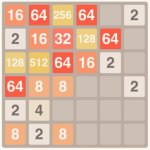 6×6 versions: The last variation on this game with a different amount makes the game completly diffrent in dynamics, you experience the element of ‘luck’ and being clever more strong… New patrerns are recognised during play and curiosity is being fed full time, however i do lack the time and patience to continue these games… (Or This game?)
6×6 versions: The last variation on this game with a different amount makes the game completly diffrent in dynamics, you experience the element of ‘luck’ and being clever more strong… New patrerns are recognised during play and curiosity is being fed full time, however i do lack the time and patience to continue these games… (Or This game?)
Ps: while looking for the links while writing this article, I found more versions with the same gameplay… for instance combining colours and get to white! to be continued… ; P



